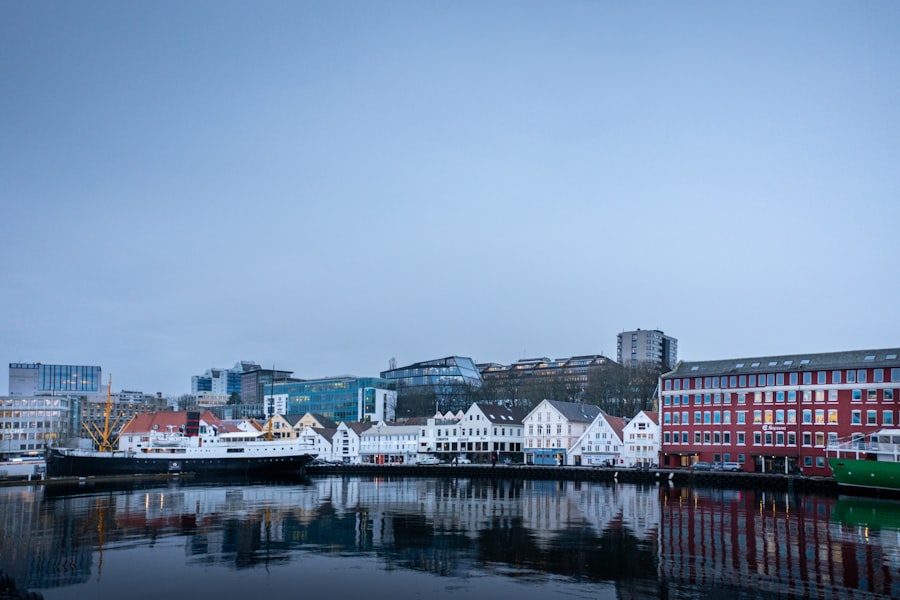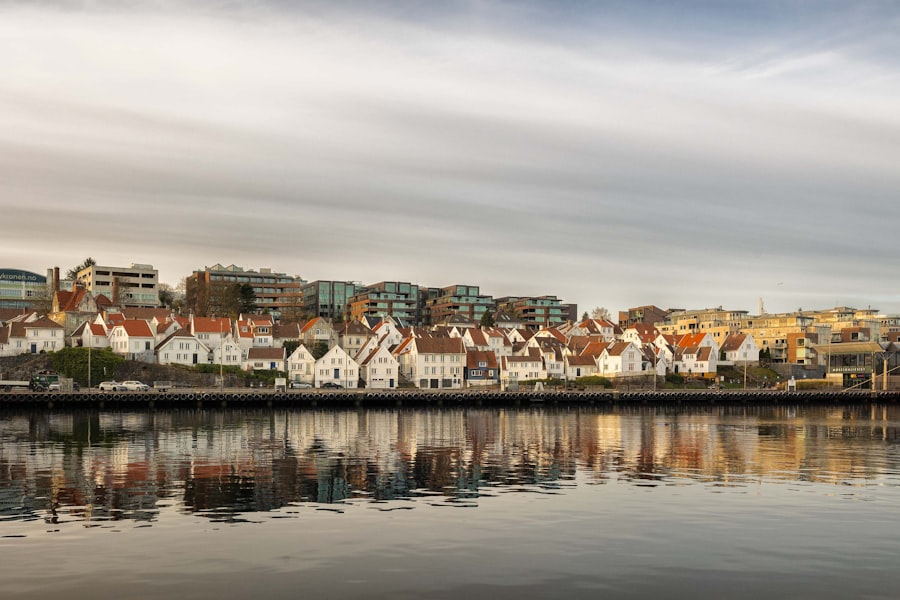Relocating to Norway can be an exhilarating yet daunting experience, especially when it comes to understanding the initial costs associated with setting up a new home. The first step in this journey is to grasp the financial implications of moving to a new country. From securing a rental property or purchasing a home to furnishing it, the expenses can accumulate quickly.
It is essential to have a clear understanding of these costs to avoid any unpleasant surprises down the line. The initial costs can vary significantly depending on your location within Norway, as cities like Oslo and Bergen tend to have higher living expenses compared to smaller towns. Key expenses include deposits for rental properties, which typically amount to three months’ rent, and the costs associated with purchasing a home, such as legal fees and taxes.
Additionally, you may need to budget for moving expenses, which can include hiring a moving company or renting a vehicle for transportation. By carefully assessing these initial costs, you can create a realistic budget that will help you navigate your new life in Norway more smoothly. Plan your relocation with confidence. Book a personal meeting with the Norway Relocation Group today. https://norwayrelocation.no/one-hour-strategy-session/
Summary
- Initial costs of setting up a home in Norway can include property taxes, legal fees, and registration fees.
- Budget for essential furniture and appliances by prioritising items and considering second-hand options.
- Consider renting vs. buying based on your long-term plans and financial situation.
- Factor in utility costs and monthly expenses such as heating, electricity, and water bills.
- Home insurance and contents insurance are essential for protecting your investment and belongings.
Budgeting for Essential Furniture and Appliances
Once you have secured your living space, the next step is to furnish your home. Budgeting for essential furniture and appliances is crucial, as these items are necessary for creating a comfortable living environment. The cost of furnishing a home can vary widely based on personal preferences and the size of the space.
It is advisable to prioritise essential items such as beds, sofas, tables, and kitchen appliances before considering decorative pieces. When budgeting for furniture, consider exploring both new and second-hand options. Norway has a thriving market for pre-owned furniture, with many online platforms and local shops offering quality items at reasonable prices.
Additionally, larger retailers often have sales or discounts that can help you save money on essential purchases. By being strategic in your shopping approach, you can create a well-furnished home without breaking the bank.
Deciding whether to rent or buy a property in Norway is a significant decision that requires careful consideration of various factors. Renting is often the more accessible option for newcomers, as it allows for flexibility and less financial commitment upfront. The rental market in Norway is competitive, particularly in urban areas, so it is essential to act quickly when you find a suitable property.
Rental agreements typically last for one year, providing an opportunity to assess whether you want to settle in that location long-term. On the other hand, buying a home can be an attractive option for those planning to stay in Norway for an extended period. While the initial costs are higher, owning property can be a sound investment in the long run.
The Norwegian housing market has shown resilience over the years, making it an appealing choice for many. However, potential homeowners should be aware of additional costs such as property taxes and maintenance fees. Ultimately, the decision between renting and buying will depend on your personal circumstances and long-term plans.
Factoring in Utility Costs and Monthly Expenses

Once you have settled into your new home, it is essential to factor in utility costs and monthly expenses as part of your overall budget. Utilities such as electricity, water, heating, and waste disposal are necessary for daily living and can vary significantly based on usage and location. In Norway, electricity prices can fluctuate due to seasonal changes and demand, so it is wise to monitor your consumption closely.
In addition to utilities, consider other monthly expenses such as internet and phone services, groceries, transportation, and insurance. Creating a detailed budget that accounts for these recurring costs will help you manage your finances effectively and ensure that you are prepared for any unexpected expenses that may arise. By keeping track of your spending habits, you can make informed decisions about where to cut back if necessary.
Considering the Costs of Home Insurance and Contents Insurance
Home insurance and contents insurance are vital components of protecting your investment in Norway. Home insurance typically covers the structure of your property against risks such as fire or natural disasters, while contents insurance protects your personal belongings from theft or damage. The cost of these insurance policies can vary based on factors such as the value of your home and its contents, as well as your chosen coverage limits.
When selecting an insurance provider, it is advisable to shop around and compare quotes from different companies to find the best deal. Many insurers offer discounts for bundling home and contents insurance together, which can lead to significant savings. Additionally, understanding the terms and conditions of your policy is crucial; ensure that you are aware of any exclusions or limitations that may apply.
By investing in adequate insurance coverage, you can have peace of mind knowing that your home and belongings are protected.
Setting Up Internet, TV, and Phone Services
In today’s digital age, setting up internet, TV, and phone services is an essential part of establishing your new home in Norway. The country boasts a robust telecommunications infrastructure, with various providers offering competitive packages for internet and mobile services. When selecting a provider, consider factors such as speed, reliability, and customer service to ensure that you choose the best option for your needs.
Many providers offer bundled packages that include internet, TV channels, and mobile services at discounted rates. This can be an excellent way to save money while ensuring that you have access to all the entertainment and communication services you require. Additionally, be sure to check if there are any installation fees or equipment rental costs associated with setting up your services.
By carefully evaluating your options and comparing prices, you can find a plan that fits within your budget.
Transportation costs are another critical aspect of budgeting when moving to Norway. Depending on where you live and work, you may need to decide between owning a car or relying on public transportation. Owning a car can provide convenience and flexibility but comes with additional expenses such as fuel, maintenance, insurance, and parking fees.
On the other hand, Norway has an extensive public transportation system that includes buses, trams, trains, and ferries. Public transport is often efficient and well-connected, making it a viable option for many residents. Monthly passes can offer significant savings compared to purchasing individual tickets for frequent travel.
Ultimately, your choice will depend on your lifestyle preferences and commuting needs; weighing the pros and cons of each option will help you make an informed decision.
Budgeting for Home Maintenance and Repairs

Home maintenance is an ongoing responsibility that should not be overlooked when budgeting for your new home in Norway. Regular upkeep is essential for preserving the value of your property and ensuring that it remains safe and comfortable for you and your family. Common maintenance tasks include cleaning gutters, servicing heating systems, painting walls, and addressing any plumbing issues that may arise.
It is wise to set aside a portion of your budget specifically for maintenance and repairs each month. This proactive approach will help you avoid financial strain when unexpected issues occur. Additionally, consider establishing relationships with local contractors or service providers who can assist with repairs when needed; having reliable contacts can save time and money in the long run.
Understanding the Costs of Home Security and Safety Measures
Ensuring the safety of your home is paramount when settling into a new environment. Investing in home security measures can provide peace of mind and protect your property from potential threats. The costs associated with security systems can vary widely based on the level of protection desired; options range from basic locks and alarms to comprehensive surveillance systems.
When budgeting for security measures, consider factors such as installation fees and ongoing monitoring costs if applicable. Additionally, it may be worthwhile to explore local crime statistics to determine which security features are most relevant for your area. By prioritising safety measures within your budget, you can create a secure living environment for yourself and your loved ones.
Planning for Additional Expenses: Pet Ownership, Childcare, and Leisure Activities
As you settle into your new life in Norway, it is essential to consider additional expenses that may arise from pet ownership or childcare responsibilities. If you have pets or plan to adopt one while living in Norway, budgeting for their care—including food, veterinary visits, grooming services, and pet insurance—is crucial. Similarly, if you have children or plan to start a family while living in Norway, childcare costs can be significant depending on your needs.
Researching local daycare options or schools will help you understand the associated fees better. Furthermore, budgeting for leisure activities such as sports clubs or cultural events will enhance your overall experience in Norway by allowing you to engage with the community.
Seeking Financial Assistance and Grants for New Homeowners in Norway
For those looking to purchase their first home in Norway or make significant renovations to their existing property, seeking financial assistance or grants can be beneficial. Various government programmes exist to support new homeowners through subsidies or low-interest loans aimed at making housing more affordable. Additionally, organisations like the Norway Relocation Group can provide invaluable assistance throughout this process by offering guidance on navigating financial options available specifically for newcomers.
Their expertise can help you identify potential grants or financial support tailored to your situation. Moreover, if you’re looking to integrate into Norwegian society more fully while managing these financial aspects effectively, consider enrolling in Norwegian courses at the NLS Norwegian Language School in Oslo. Learning the language not only enhances communication but also opens doors to understanding local customs and regulations better—an essential step towards making informed financial decisions as you settle into your new home.
In conclusion, moving to Norway involves various financial considerations that require careful planning and budgeting. From understanding initial costs to navigating ongoing expenses like utilities and maintenance, being proactive about your finances will help ensure a smooth transition into your new life in this beautiful country. With resources like the Norway Relocation Group at your disposal and opportunities for language learning at NLS Norwegian Language School in Oslo, you’ll be well-equipped to thrive in your new environment while managing your financial responsibilities effectively.
Register for a Norwegian class at the NLS Norwegian Language School now!

